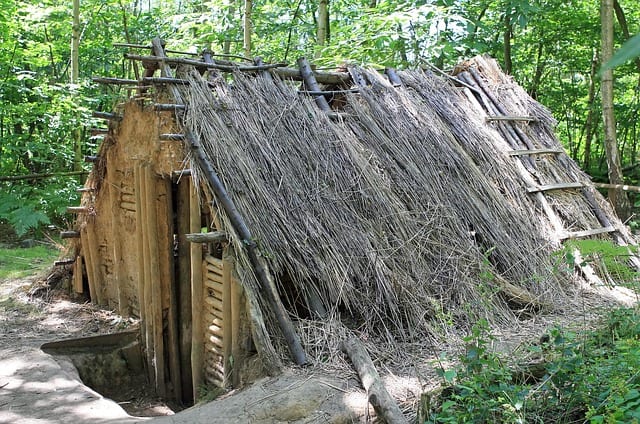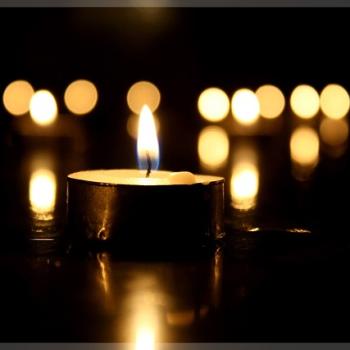
Last night on Twitter, I had an interesting insight into what your standard Catholic and Orthodox traditionalist wants out of life.
A gentleman called “Man with a Purpose” wrote:
“Medieval Peasants: 1. Worked less hours than you. 2. Had longer vacations. 3. Had more sex. 4. Likely had a bigger house. 5. Definitely had higher T. 6. Ate better food than you. 7. Paid less taxes 8. Rarely saw his boss 9. Had crazy harvest festivals 10. Never heard of feminism.”
I waited and waited for the punch line, and then discovered this was it. That was all there was. This gentleman actually thought the Middle Ages were a preferable time to live in because of the sex, vacations, good food and lack of feminism.
I guess this says a lot about what he wants out of life.
The post was widely criticized but I also saw a lot of men in there concurring– mostly with the testosterone, food, sex and anti-feminism. Nobody wanted to live in a Medieval peasant house. But even the notorious traditionalist Stephanie “Pizzagate” Nichols responded that anything would be worth it just to never have heard of feminism. This is what men’s rights activists and Catholic and Orthodox traditionalists apparently want.
Maybe we all need a refresher course on the Middle Ages, and particularly what the peasant classes were up to.
Medieval peasants lived in highly flammable houses made of poop.
That’s what wattle-and-daub is: lattice covered over with dung and mud. That’s why we have some Medieval castles still standing but not peasant houses. They were made of poop, and they either burned down or dissolved.
True, Medieval peasants weren’t muddy and filthy all the time as they’ve been portrayed; they knew what water was. They couldn’t run themselves a hot shower but they could get a bowl of water to wash up in after a day’s work in the fields, and they did. Of course, sometimes the water had parasites in it, and then they got infections. And they didn’t take antibiotics for the infections. They didn’t sip orange juice to help their immune systems. They just sat around their poop houses hoping it would go away.
True, they didn’t all die in their thirties as we’ve been led to believe. The average ages get thrown off quite a bit by the enormous number of people who died before the age of five or in childbirth. But if you lived past the age of five and you weren’t a pregnant woman, you stood a great chance of living to sixty or so, in a poop house with no antibiotics. Your teeth would rot out of your head and have to be pulled with rusted implements, but you’d live.
True, they did get time off work. In the spring, summer and fall when it was nice to be outside, they were outside performing back-breaking manual labor from dawn to dusk on farms. In the winter, though, there was comparatively less to do. Winter was a nice vacation of staying home, stopping the drafty holes in the wall, trying to maintain that smoky fire in the poop house, hoping the house didn’t burn down, hoping you didn’t catch cold, and praying the food stores held out. Sometimes they didn’t.
That food now, whether that was better than today is a matter of taste. It depends on what you like. There weren’t a lot of preservatives or artificial flavors, of course. No corn syrup or the dreaded soy. Medieval peasants drank a lot of ale. This didn’t actually lead to them being tipsy all the time because everyone was used to it. They drank the beer and ale mostly for the calories, and it was surely more refreshing than river water that had poop in it. They also ate a lot of root vegetables, which were poor man’s food. They ate them without seasoning because spices were ridiculously expensive. Medieval European food was shockingly bland– think Irish food without the potatoes, because potatoes were from the New World. Think of Italian food with no herbs and spices, no tomatoes or peppers– those weren’t found in Europe originally either. Even noodles were originally from China.
They had bread, of course. My main takeaway from the discussion online is that traditionalists and men’s rights activists are extremely fond of bread– one topic on which we agree. Bread is delicious. But they seem to have strange notions that bread is scarce in modern times. Several times in the discussion, they broke in with “The bread! Medieval peasants had so much delicious fresh BREAD! All the fresh bread you could eat!” And it’s true, Medieval peasants had lots of bread– pease bread, made of whole grains and legumes squashed together. It’s actually very healthy for you and kept the peasants regular. They would form the dough into trenchers, actual plates made of whole grain bread, and eat their meals off of them, and then eat the plates. This is an idea that deserves a comeback. The lords of the castle ate white bread, which is constipating and not as nutritious, and took their fatty and meat-intensive dinners off of lead plates. This is where we get the phenomenon of rich man’s diseases like gout. But I wonder if the traditionalists and men’s rights activists understand that you can still get fresh bread today, even with all the feminists.
No, to my knowledge there wasn’t anybody who called herself a feminist in the Middle Ages. The word hadn’t been made up.
Of course, you had to deal with lippy dames like Saint Catherine of Sienna writing letter after cheeky letter to correct the Pope, and rather than stop her the Dominicans assigned her assistants so she could dictate two letters at once. Sometime before her you had Ciara of Assisi running away from an arranged marriage in shocking disobedience to her father, so that Saint Francis could give her a short haircut and help her found an order of nuns which ended up being rather successful. You had Joan of Arc repelling the English forces, though eventually they managed to put a stop to her– not until after she’d altered the course of history and all. Matilda the Magravine of Tuscany was also known for meddling in both church and secular politics, and was known for her military achievements as well. Isabella of Castille commanded armies as a help to her husband. Jeanne Hatchette earned that surname name by fighting off a Burgundian standard-bearer with a small ax. Joanna of Flanders burned down an enemy camp. Hildegard of Bingen was famous in the fields of theology, philosophy and medicine, while Hrotsvit of Gandersheim wrote histories and plays.
Few of those women were peasants; some famously were. Most of the time, if you were a peasant, you were safe from rebellious women, sitting there in your poop house with good testosterone and rotten teeth, having sex on the straw, waiting for winter to be over so you could end your vacation and get some fresh unseasoned food.
No internet, though. If you had a hot take about how far superior life was in a bygone era, you couldn’t post it on Twitter to own the libs.
Makes me long for those simpler times, even with all the poop.
(Image of a wattle and daub house via Pixabay)
Steel Magnificat runs almost entirely on tips. To tip the author, visit our donate page.












